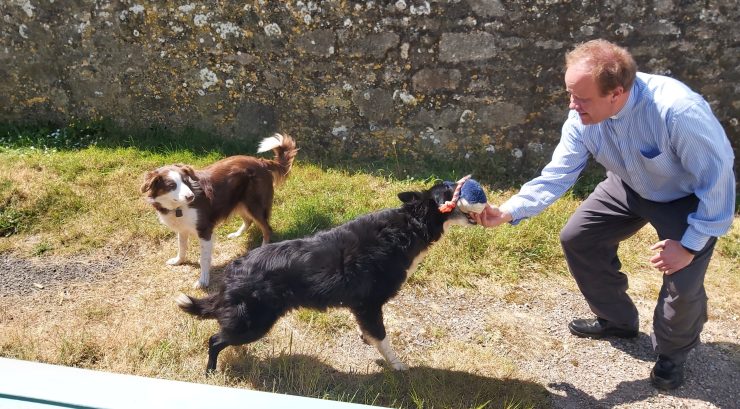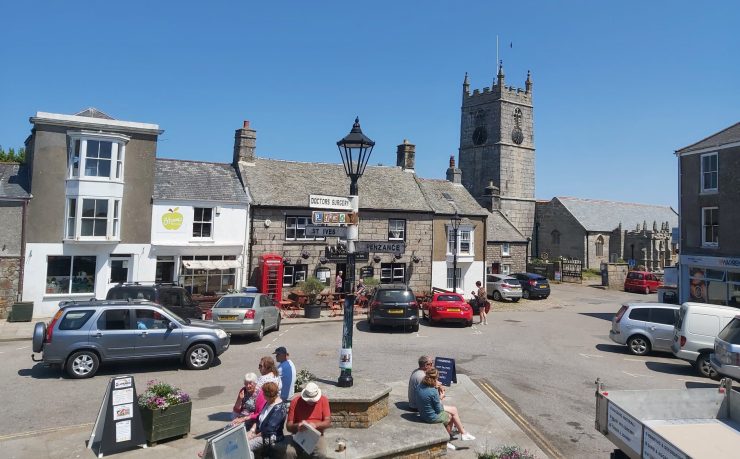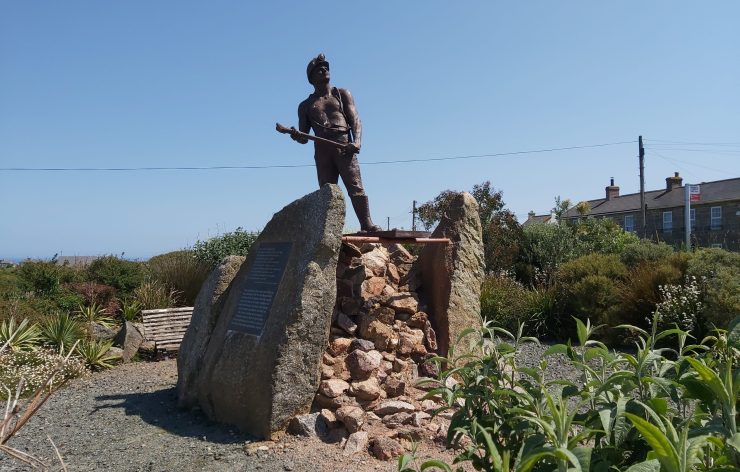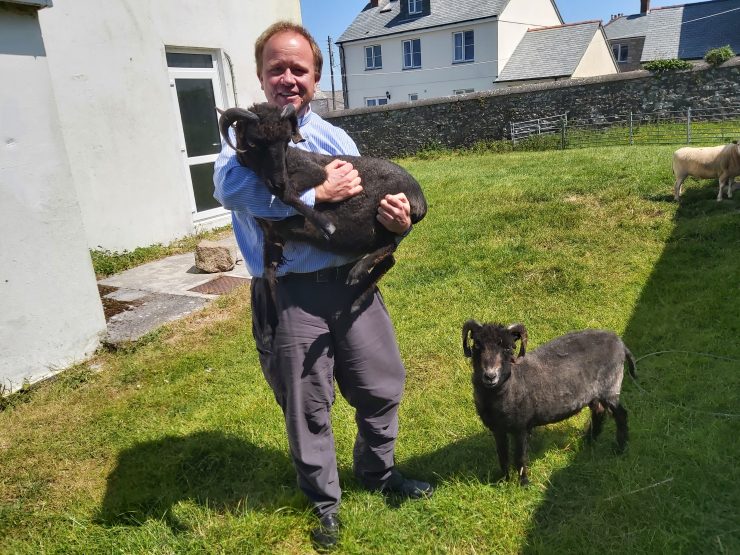A good shepherd
The view is truly stunning.
The remote coastal community of Pendeen lies on the northwestern tip of Cornwall looking out over the cool blue of the Atlantic, out on the Land’s End peninsula way beyond Penzance and St Just.
The Reverend Karsten Wedgewood clearly relishes the beauty of the place on this early summer’s day, there this bright morning in the company of his two border collies – Gwyneth and Hamish – a fine pair of energetic sheepdogs kept on their toes by Piran, Trelawny, Tamsin and Lowenna – the four sheep (three Ouessants and one Texel) which he also keeps.
It certainly seems idyllic, at least on a day like this.
“When you look out of the window you’d think we’re in paradise,” Karsten says. “But there are so many in our communities who are suffering.”
However, Karsten works on the principle, as he puts it, that “suffering shared is suffering halved” and he’s therefore established a group for bereaved local people to help them cope with their grief.
From Prussia with love
Karsten was born just south of Hanover in central Germany, on the western side of the nation divided at the time by Cold War ideologies.
His family weren’t particularly religious. They attended church at Christmas but not much else. Yet the young Karsten had always felt close to God.
He studied theology at Göttingen University but had never considered becoming a priest, because of his terror of public speaking.
In his late twenties, he’d come to Britain as an assistant German teacher because he’d wanted to improve his English. It was while he was based in Wales that he had something of a modest epiphany.
“I happened to walk into the local Anglican church,” he explains. “The people there said hello and gave me a coffee and a biscuit, and were really nice. That would never have happened in Germany. German churches aren’t like that.”
In Germany the Lutheran church is funded through a form of taxation from which people have to, should they wish, make a conscious choice to opt out.
“That makes the church very rich,” Karsten says. “And that makes it complacent. It doesn’t have to reach out to people or communities anymore.”
So Karsten decided to stay in the UK. He moved to Manchester, where during the week he worked as a dog-trainer, and where on Sundays he went to church.
“The vicar there was very kind,” he says.
That vicar encouraged Karsten to play an increasingly active part in services, gradually building his confidence and overcoming his fear of public speaking as he read scripture to the local Sunday worshippers.
That led to his decision to train for ordination.
“And I eventually got to put on the dog collar myself,” he says.
He continued to learn and to hone his skills in oratory with the support of his first congregations.
“When I look back at my early sermons,” he admits, “I think – did I really say that?
“But people are very good and affirming when you’re a curate. You’re a bit like a puppy dog. People are very kind to you.”
Community service
That’s a kindness which Karsten now repays in spades to the local communities with whom he works in Pendeen, Morvah and St Just.
He serves as a police chaplain, visiting his local station each week to offer his pastoral support. It was through that work that he got to know the search and rescue teams in that part of Cornwall, and then decided to volunteer to support their efforts.
“That was something in which I thought I could play an active part,” he says.
He’s currently completing his advanced first aid training.
“I really value that training,” he says. “It makes all the difference in saving lives.”
In an average call-out to find a missing person, the police split the search and rescue volunteers into groups of four or five, who then systematically go through their allocated area on foot. Karsten serves as the medic in those teams.
“Some of the people we look for don’t want to be found,” he says. “And sometimes sadly we find them deceased. But even that is necessary. It gives closure to the families.”
Good grief
Two years ago, Karsten established a support group for people who’d been recently bereaved.
“When we started, their grief was still quite raw,” he says. ”But they bonded with each other and became friends. To meet with people who feel the same as they do – that’s really been a great relief for them.
“At the start, some of them would ask what was the point in carrying on. But things have got better for them now. They’ve moved on.
“One lady told me this spring that she’d noticed the colours of the flowers for the first time in a while. She hadn’t seen them properly last year at all.
“It seems to have helped them in their journeys, helped them to navigate those rocks at this very difficult time. They can see there really is life beyond their grief.”
There are now nine members of the group, our widower and eight widows. It meets once a month in one of the members’ homes.
“They aren’t all churchgoers,” Karsten says. “They were just people who’d asked to hold their husband or wife’s funeral in the church. If we hadn’t set up this group, they’d have dropped out of sight. We wouldn’t have seen them again.”
Karsten explains that he’d previously just done “what vicars tend to do”. He’d meet the families before the funeral and then at the service itself, but wouldn’t usually keep in touch.
“When you take a funeral, people might say ‘nice service’ but with this group you get real meaningful feedback in ways that you otherwise wouldn’t. Hand on heart, I can say that this is something that really makes a difference.
“I should have done it years ago. It’s so easy. You just meet once a month and have a cup of coffee together.”
Once more, Karsten has found that the hospitality offered by a hot drink brings people together in kindness, hope and faith.
“All I do is bring them together and try to facilitate the conversation,” he insists. “That’s really all I’m doing.”
He feels that it’s something which people in other communities would benefit from trying.
“Just do it,” he says.









